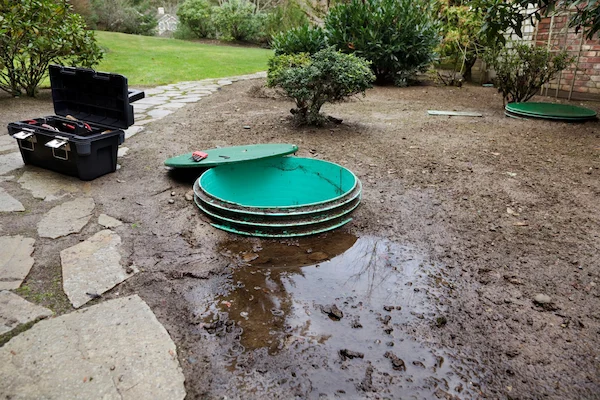Are you ready for the winter chill? Have you thought about winterizing your plumbing and septic systems? As winter approaches, it’s crucial to protect these vital home structures. Freezing temperatures can cause damage if not properly winterized.
We’ll share expert tips on preparing your plumbing and septic system for the frosty months ahead. So, how should you start?
Let’s dive in to find out.
Insulate Exposed Pipes
One of the most critical steps in winterizing your plumbing is to insulate any exposed pipes. As temperatures drop, uninsulated or under-insulated pipes are vulnerable to freezing and bursting, resulting in costly repairs.
You can use pipe insulation sleeves or heat tape to protect these pipes from harsh weather conditions. For professional assistance, reach out to our reliable plumbing services.
Check for Leaks
Before winter arrives, it’s vital to check your plumbing system for any leaks or cracks that could worsen during the colder months. Fixing these issues beforehand can prevent them from turning into more significant problems during the winter.
Clear Gutters and Downspouts
Make sure to clear out any debris from your gutters and downspouts before the first snowfall.Blocked gutters can result in water backing up and freezing, leading to ice dams that may damage your roof and gutters.Regular cleaning helps prevent water from pooling around your foundation and causing damage to your home.
Have Your Septic System Inspected
As the colder months approach, it’s crucial to have a professional inspect your residential plumbing system. They can check for any issues and ensure that your septic system is in proper working order before winter arrives. Neglecting this step can lead to costly repairs and inconveniences during the winter season.
Add Insulation to Your Septic Tank and Pipes
In addition to insulating exposed pipes, it is crucial to add insulation to your septic tank and pipes to protect your plumbing system. This additional layer of insulation provides essential protection against freezing temperatures. It can ensure smooth operation throughout the winter months and address your plumbing needs.
Keep an Emergency Kit Handy
Despite our best efforts, emergencies can still happen. It’s always a good idea to have an emergency kit on hand in case of a plumbing or septic system issue during the winter season. This kit should include items such as a flashlight, extra batteries, bottled water, and non-perishable food.
Take Preventative Measures When Leaving for an Extended Period
If you’re planning to be away from home for an extended period during the winter, it’s crucial to take preventive measures to safeguard your plumbing and septic system. Remember to turn off the main water supply and consider draining all the pipes to prevent freezing or bursting. In case of any plumbing emergencies, find local plumbers close by who can provide immediate help.
Consider These Tips for Winterizing Plumbing and Septic System
Winterize your plumbing and septic system to ensure a safe and functional home during the cold months. Don’t wait until it’s too late; start preparing now to avoid costly repairs and inconveniences in the future.
Stay warm and stress-free by taking care of these essential systems in your home before the winter chill sets in. So, follow these tips, stay proactive, and you’ll be ready to face the winter season with confidence. Stay safe and warm, everyone!
Did you find this article helpful? If you’re interested, explore the remaining sections of our site for more informative content.
Related Article: How To Properly Install And Use Plumbing Strapping To Prevent Leaks
.







